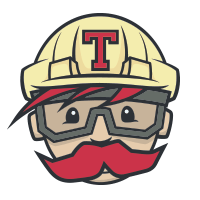
GitHub




Millions of developers use GitHub to share code and build businesses. You’re here to do your job, tinker with new technologies, contribute to open source projects, and so much more. You’ve shown that when curious people have space to work together, great things happen: Work goes faster, new ideas emerge, and the way we build software fundamentally changes.
To celebrate your contributions and a spectacular year together, let’s look back at the projects, people, and teams of 2017.
You’ve accomplished millions over the last decade. In 2017, the GitHub community reached 24 million developers working across 67 million repositories.
You’ve been collaborating from every corner of the earth. 24 million people use GitHub across 200 countries. This map approximates which continents use GitHub most.
You’ve had a busy year, sharing code across 25 million public repositories. Let’s explore the ways you’ve built, the contributions you made, and the languages you’ve used.
"Active" means there was some public activity within the last year—code committed, a comment created, a repository starred, or an issue opened.
In 2017, you merged your 100,000,000th pull request
In case you were wondering, it was a documentation update—one of the most important contributions you can make.
You also closed
68,800,000 issues total*
* We previously reported this number as 68 million pull requests closed in 2017, but it represents the total number of pull request closed on GitHub.
GitHub is home to open source projects written in 337 unique programming languages—but especially JavaScript.
# of pull requests
Python replaced Java as the second-most popular language on GitHub, with 40 percent more pull requests opened this year than last. Typescript was also on the rise in 2017, used in almost four times as many pull requests as last year.
In January, we released topics: repository tags that let you explore projects by technology, industry, and more. Here are the top topics you used for your repositories since the feature launched, not including frameworks or languages.
These are some of the most active organizations and projects by the number of unique contributors, forks, and comments.
This list doesn’t include MOOC courses, but an R programming assignment on Coursera has forks in the thousands, too. If forks are any indication, more than 100,000 students have started this assignment.
Comments and reviews are just a small part of how much talk it takes to build to software. This year, you exchanged feedback with coworkers, collaborators, and friends all over the world.
Often words can’t express the gooey core of our emotions. Sometimes, only a

Thanks for bringing us to work. You’ve used GitHub to do your jobs at businesses big and small, from scrappy teams to enterprises across the globe.
Just under half of the 100 largest companies in the United States (by revenue) use GitHub Enterprise to build software.
Teams can work together in a way that’s collaborative, transparent, and safe no matter where in they world they sit. In fact, one fourth of GitHub Enterprise accounts come from outside of the United States.
Every team on GitHub Enterprise builds software, but more than half of them code to power other industries—from finance to retail. These are the top ten industries represented.
The GitHub Developer Program is a way for you to get the resources you need to build great things on GitHub. This year, we made the program even bigger and welcomed 50 percent more members than last year.
Since we announced Integrations Early Access, you’ve created more than 1,000 integrations, and the number of OAuth Apps you’re building continues to grow exponentially. So far, you’ve added more than 100,000 OAuth Apps, used by 1.8 million GitHub users.


Marketplace launched in May 2017 to provide you with new ways to work better. There are currently 26 integrations available, and that number is growing every month.


With so much of the world’s code on GitHub, it’s a natural place for people to learn and prepare for careers in technology—millions of teachers and students now work together on GitHub.
505,045 students are learning on GitHub
5,300
teachers are educating on GitHub
We’ve worked with you in university classrooms everywhere from New York to Singapore. These are the colleges and universities using GitHub most by the number of accounts using our education discount.
4,526 teachers and students are working together on GitHub Classroom—a way to distribute, complete, and grade assignments on GitHub. This year, signups for GitHub Classroom have grown nearly 100 percent and spread across 272.2K repositories.
Since its launch in 2014, the Student Developer Pack helped over 850K students code like pros without worrying about the cost. Join the Pack
Fifty Campus Experts have worked hard to build tech communities at their schools. These students major in various subjects—from computer science to economics—and they come from 14 different countries.
This year, seven million developers joined GitHub. You opened your first pull requests, created new repositories, and contributed to the open source community in hometowns from São Paulo to Shanghai.
We’re excited to welcome newcomers from around the world to GitHub. This year, more than 1,000,000 developers joined us from the United States and nearly 700,000 from China.
For a little over a year, we’ve been asking new GitHub users about their professional and programming experience. We learned that almost half of people signing up are students or new to programming.
People are behind every project. This year, developers and open source maintainers shared their stories.
Katrina is the creator of Exercism, a platform for people learning programming languages that supports more than 50 languages, written and used by developers across 190 countries.
Alicia is an activist, mentor, grandmother, and self-taught developer from Georgia. After learning to code online, she built an app to support women who are victims of domestic violence across the United States.
Lisa is a fashion designer from a long family tradition of German textile workers. She creates wearable technology for high end couture fashion and helps aspiring fashion technologists kick off careers.
Inselect is an open source desktop application created by the Natural History Museum in London that automatically crops and catalogs insect specimens.
We’ve made it our mission to help more people build, use, and share software—and we’re finding new ways to help out. Over the years, we’ve held hundreds of events and built partnerships with nonprofits worldwide.
In total, 32,604 non-profits are doing good on GitHub with free and discounted accounts.
We connected through events and partnerships in 37 different countries. We’ve worked with Code2040 in San Francisco, spent a Day of Code in Rotterdam, sponsored Django Girls meetups across Africa, and lots more.